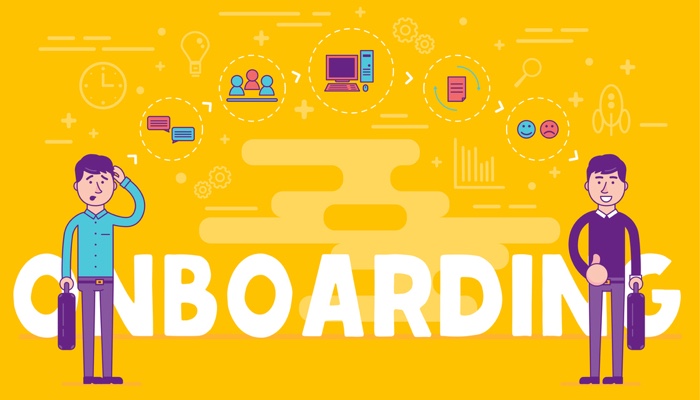Hiring your new employee is just the start of a long relationship between your company and the person you’re taking on.
It begins when you (or your recruitment partner) first introduces your firm’s opportunity to the candidate and continues throughout the interview and offer process. It includes the arrival and settling-in period, their career development and, finally, it runs on into the future when they become one of your alumni.
Before they arrive
The most daunting part of relocating for many candidates is anxiety about the unknown so it’s important to provide clear guidance as to what needs to be done and how things will unfold.
Starting from when the offer has been accepted, you need to start advising on:
- The work permit application process: what’s involved and what they need to do
- Given that these can sometimes take a while to be approved, it’s a good idea to prioritise certain items that might take longer to obtain (for example, police clearance certificates from certain countries including the UK)
- It also makes sense for the candidate to send you a scan of all their proposed forms and documents prior to submission to you, so you can pick up and rectify any errors or omissions early on and avoid an unnecessary delay later
- Make sure they send you the final, completed immigration pack by recognised international courier, not by air mail
- Allocating them a ‘buddy’ (ideally from a similar background) will make them feel more comfortable about asking informal questions about the move as well as giving them the chance to start building a personal connection to your firm and the Island
- It’s important to advise on the need for any relevant vaccinations, third country visas (e.g. UK or US visas for candidates from South Africa, for example), and travel insurance etc that may be required
- Make sure they have been given guidance on what to bring (and what not to bring) and that they’re aware there’s a chance Customs will go through their possessions with import duty to pay
- If your new recruit is planning to move with their family, consider advising on local moving companies and schools
When they arrive
- Ensure that they are met at the airport by somebody they’ll be working with rather than just a taxi driver or, even worse, no welcome party at all
- It’s unlikely they’ll remember everything but show them the most significant parts of the Island, in particular landmarks which might help them to navigate themselves. This is a key moment for first impressions – make it count!
- Most employers will pay for the first 2+ weeks of accommodation in a hotel or guesthouse, as well as provide free initial transport (a scooter or car rental) for an initial period
- During this time, new starters will appreciate any formal (agencies, websites) or informal (from staff in your office) help to identify a suitable place they can rent for themselves
- Advice on how to open a local bank account, get a local mobile phone, sign up with a GP and what’s needed to obtain a driving licence for the Island will be useful
By helping a new hire arrange these things, you are starting to build the foundations of a solid relationship. There’s nothing worse than a ‘sink or swim’ approach. That said, don’t let them assume your role is to do everything – you are, of course, looking for a certain level of professional independence.
The first working days
After a certain amount of time for your new employee to get settled into the Island –a long weekend perhaps – it will be time to introduce them to the office. You might be tempted to put them straight to work but induction training is proven to benefit employees and employers.
From the moment he/she walks in, they must see how organised you are. Start by explaining your plan/timetable for the induction period: a welcome pack is highly worthwhile. This can include training material, weekly/monthly meetings, contact numbers and even a list of people in the office (if you can add photos of the people it would be even more useful so that they can get to know the staff more easily). If your location is large, consider including a map or floor plan.
Within your induction training, you (or the person responsible for HR) ought to go over the pay system, holidays etc. They should also be made aware of emergency drills and disciplinary policies.
Defining expectations
Before you can hope for others to comply with your expectations, it’s crucial that you know exactly what they are. If you already have a team, ask yourself what you have been expecting from them: not every business owner or manager will value the same items in the same way. For example, for one person it might be necessary for employees to arrive at 9am and leave at 5pm. Others may feel that as long as the excepted work is achieved, hours can be more flexible.
What must be identical is that your rules are in place for everyone and that everyone understands the purpose of your rules and expectations and is seen to follow them. An overview of your firm’s expectations can be included in your induction training.
Introducing a mentor
As much as we’d like to spend all the required time with a new recruit, it will be more sensible to set them up with a mentor. When you look for a potential mentor, keep in mind that you aren’t looking for a babysitter or a new best friend. The ideal mentor is someone who is looking to develop the new hire’s career and professional experience.
Here are some top mentor qualities:
- The ability to actually listen
- Someone who knows how to develop individual goals that fit with those of the business
- Problem solvers
In an ideal world, the mentor will also have moved to the Caribbean/Bermuda region from overseas and, in this way, they will have some experience of what the recruit is feeling and therefore how best to guide them.
Helping socially
There are excellent reasons for organising social events after work:
- First, it is part of many people’s culture and, occasionally, it’s nice to have a sense of home, especially in a new environment that might be thousands of miles away from where they came from
- Second, when employees step out of the office they have the chance to get to know each other on a more personal, relaxed level
- Finally, it will give your new recruit an idea of the social life available and the chance to meet others from outside their own immediate team
To conclude, recruiting new staff from overseas is an exciting experience for both you and your new recruit. Take the time to arrange a structured arrival plan and your firm will benefit more quickly from a happy, productive new member of the team. Happy recruiting!
IS YOUR FIRM LOOKING FOR PROFESSIONAL STAFF?
Contact us today with details if you’d like assistance or to schedule an introductory call to see how we can help.







Leave A Comment
You must be logged in to post a comment.